Calculating your NPS score is as simple as tallying up your responses and subtracting the percentage of detractors from the percentage of promoters. For example, if 60% of respondents are promoters, 10% are detractors, and 30% are passives, your NPS would be 60-10=50.
The score is a whole number ranging from -100 to 100 and indicates happiness with brand experience. Use the NPS online calculator below to calculate your NPS from your survey responses.
Add up the number of responses provided for each score.
Add up the total number of responses provided for each group.
Subtract the percentage of Detractors from the percentage of Promoters.
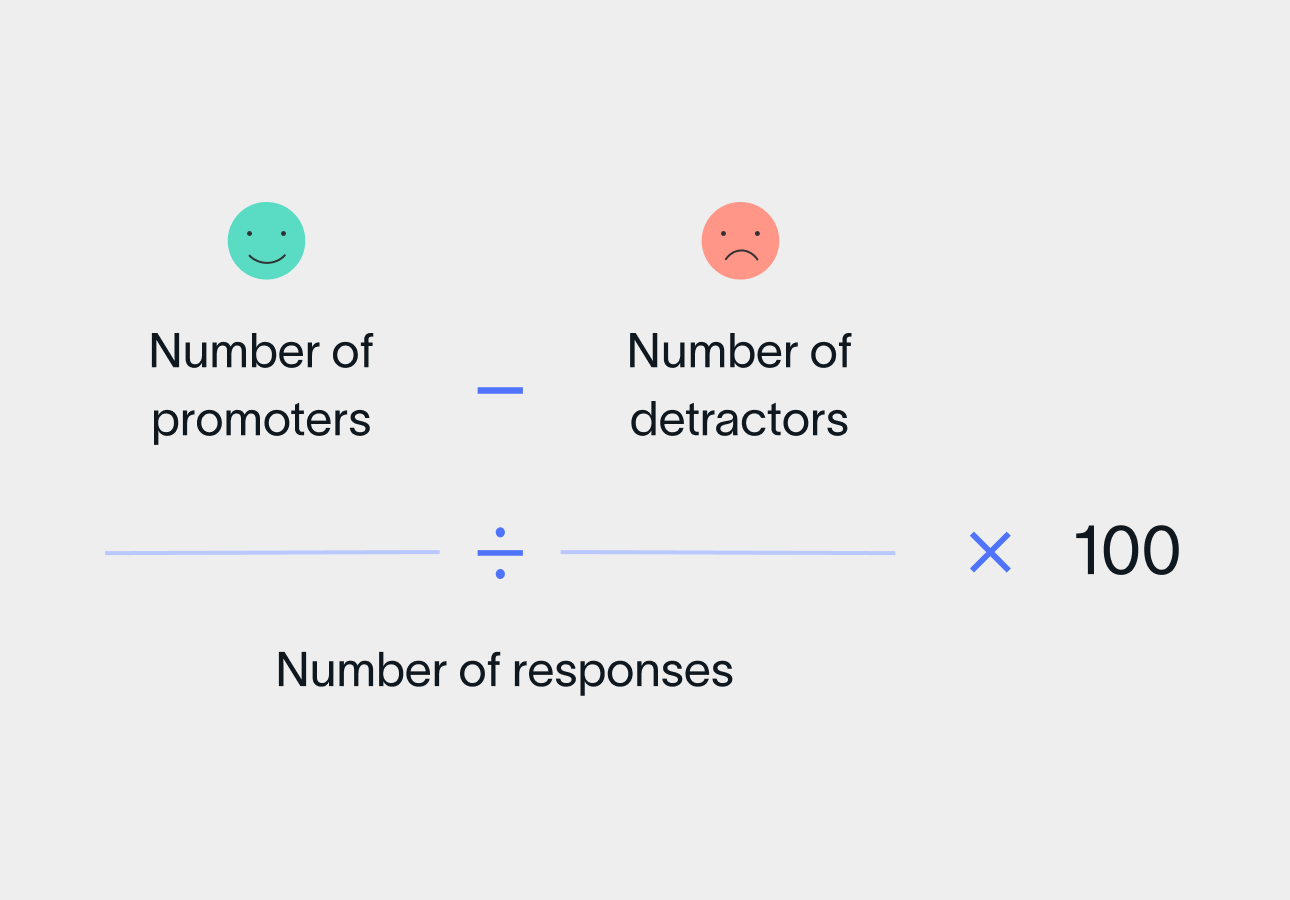
Promoters are the people who gave you a score of 9 or 10, while detractors are people who rated you a 6 or lower.
To save time, use an NPS software that updates your score in real-time as new customer feedback rolls in.
After you determine your NPS score, either by using an NPS calculator or manual calculation, it’s time to begin interpreting the data.
There are two major methods for understanding if you have a good or bad NPS score: absolute or relative. While the relative method contextualizes your score through industry NPS benchmarks, we recommend making your score an internal benchmark that you strive to perfect.
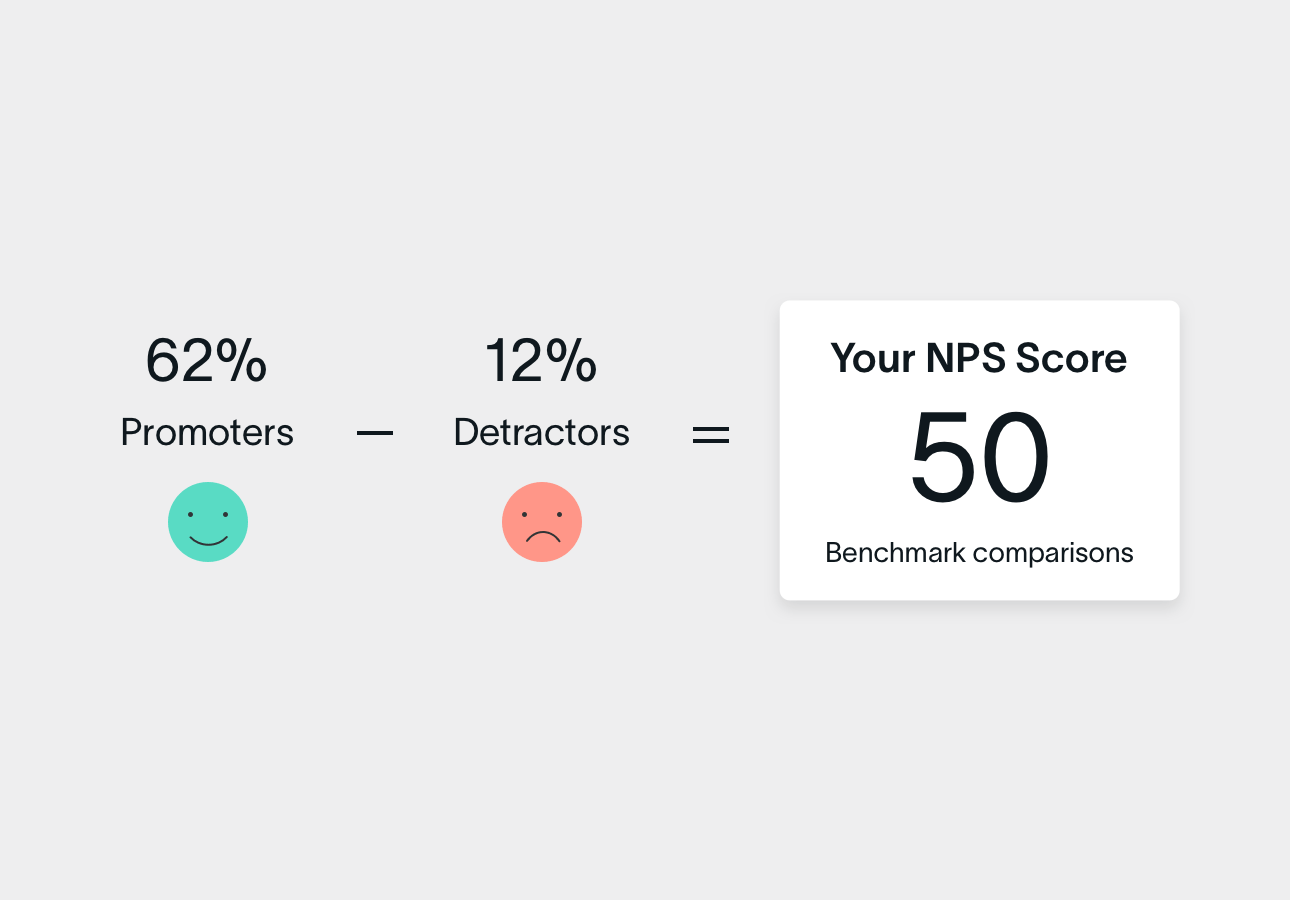
From an absolute perspective, any score below 0 implies that your customers are more likely to warn others away from you than recommend you. With this method, use your NPS score to set a customer experience baseline that you aim to improve.
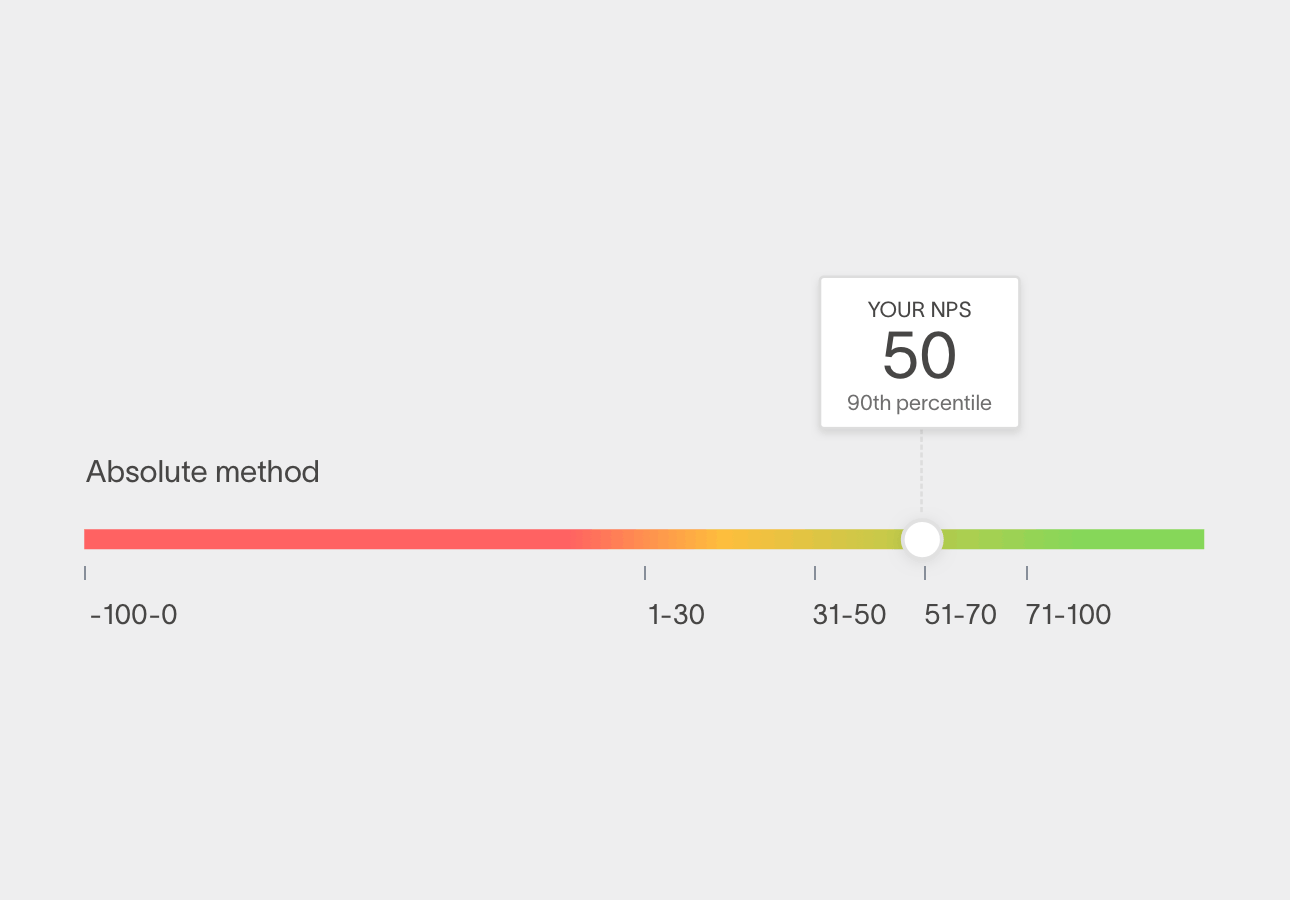
Relative method
From a relative perspective, you can look at industry NPS benchmarks to understand how much of a brand differentiator your customer experience is. For context, most companies have scores around 31 to 50, but that can vary by industry.
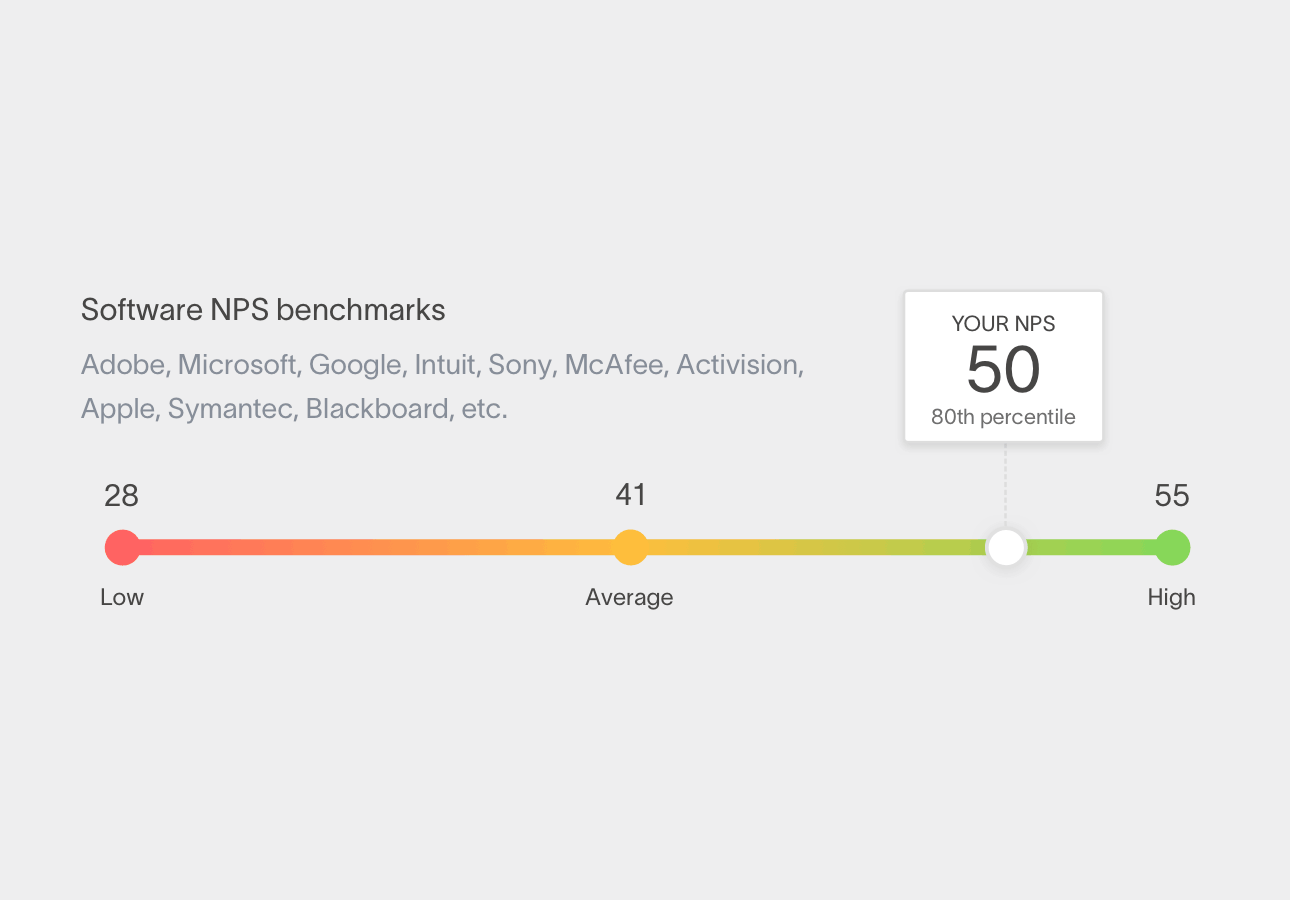
Join 75,000+ of the world's most beloved brands
Your NPS program should reflect the sentiment of your most important customers and grow with your business. If you’re not getting as much actionable feedback as you need, it’s time to perform a quarterly business review, iterate on your process, and track how your changes impact responses over time. Find ways to improve your program through sending and designing best practices or based on verbatim insight from your customers.
The impact of your NPS program relies on the quality of the feedback received. Capture critical feedback from the customers who drive your growth by testing personalized NPS survey questions for increased survey response rates.
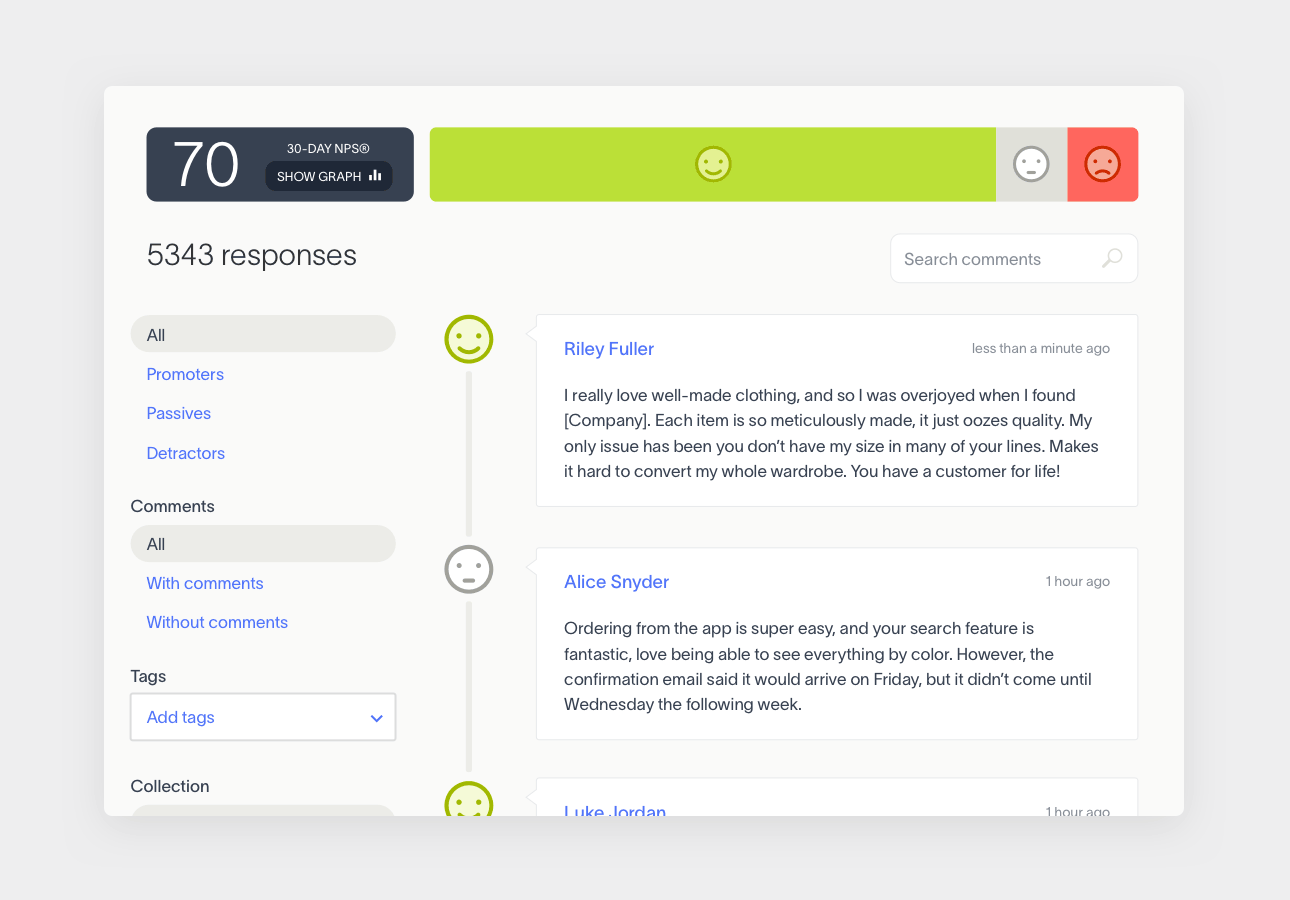
While Net Promoter Score indicates overall customer loyalty, other customer satisfaction metrics are tailored for specific parts of the customer experience. For example, CES surveys are often used to analyze and improve customer service, and PMF surveys gather feedback on your products or services – all glean insight into how your customers feel across the customer journey and can help improve your overall NPS score.
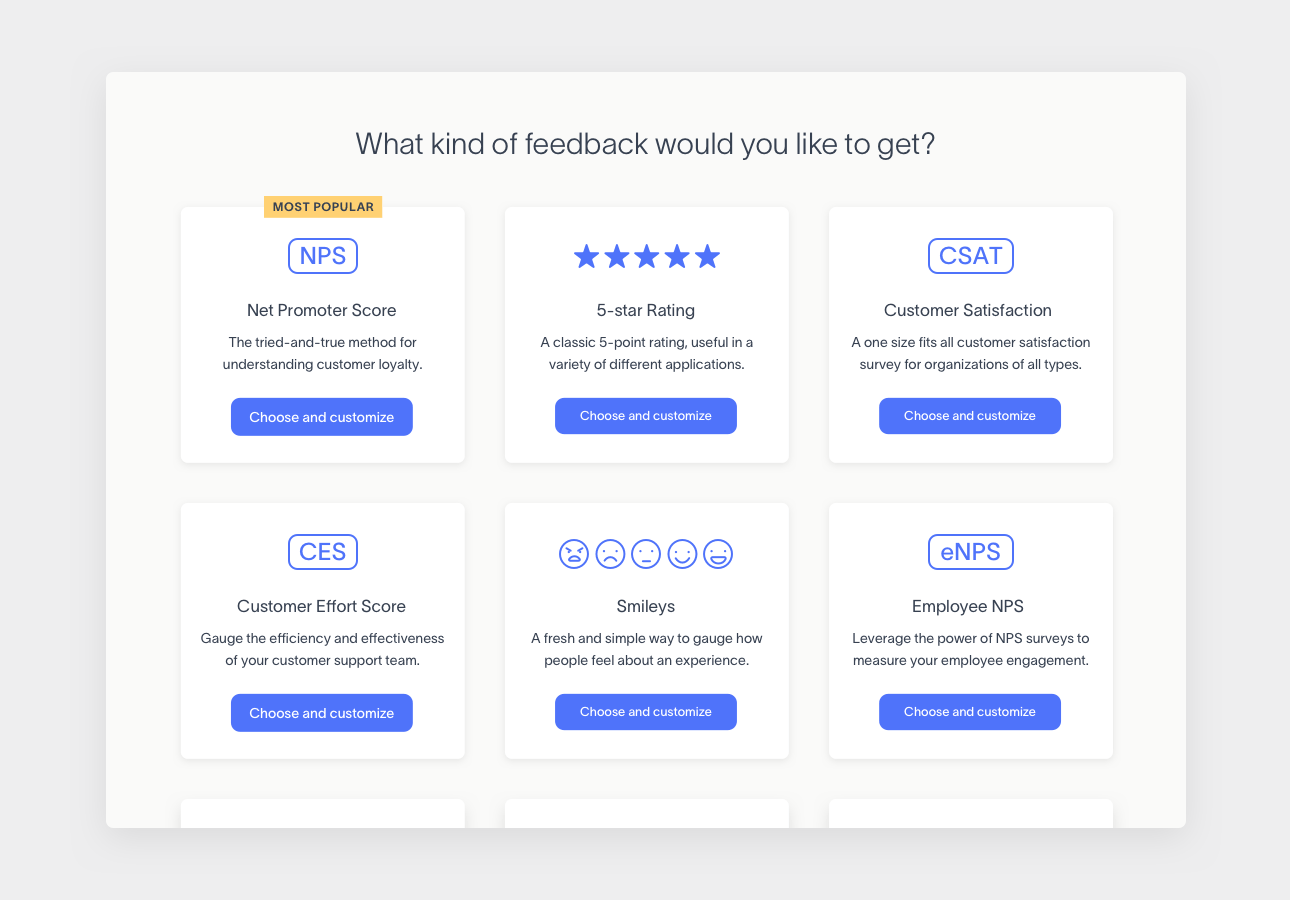
Gain deeper insights
NPS is just the beginning. Delighted provides ways to easily test various customer experience survey distribution channels, better understand customers via custom survey research, and grow into other survey types, such as Customer Satisfaction Score (CSAT), Customer Effort Score (CES), and more.
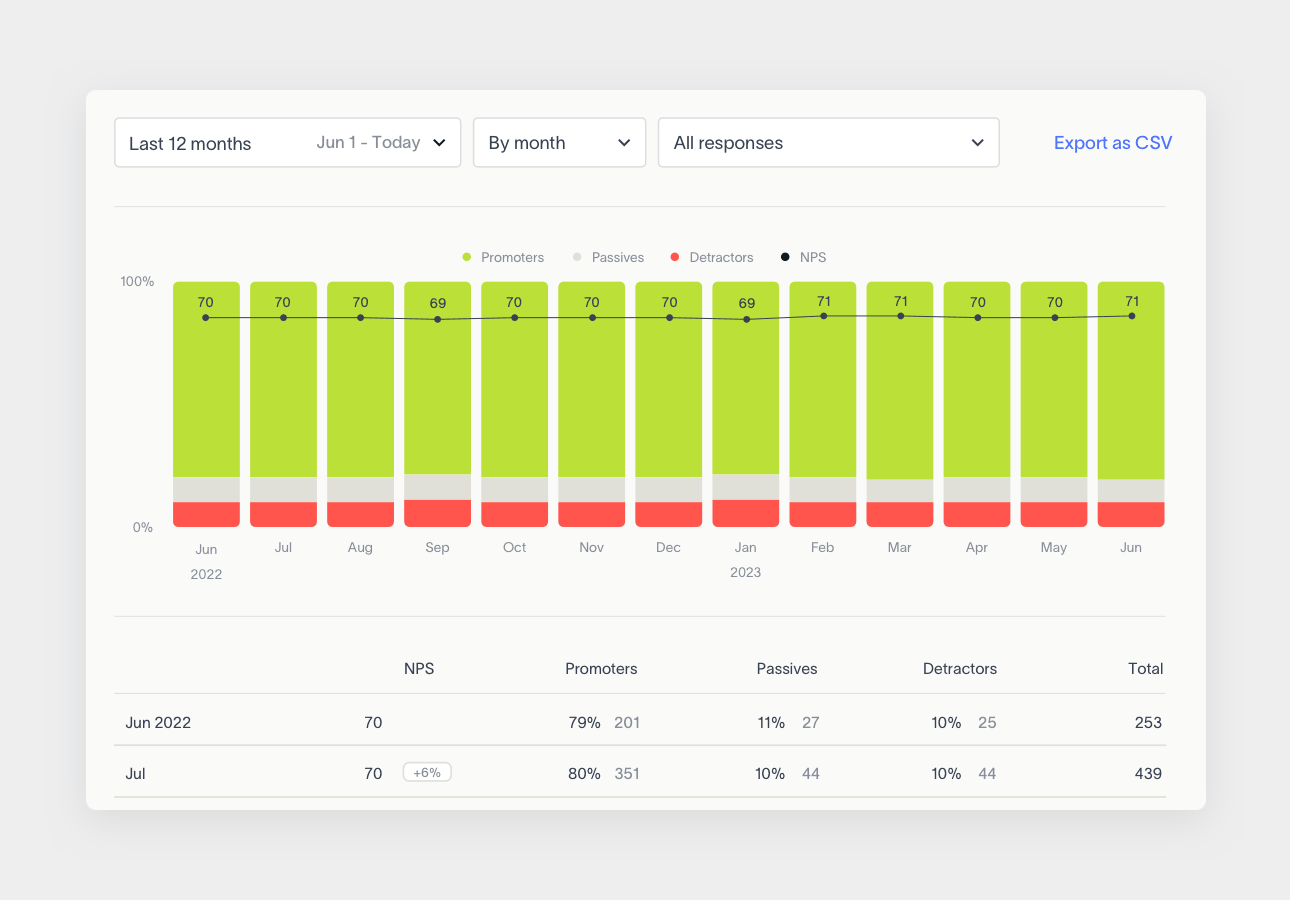
Delighted helps some of the world’s most coveted brands gather actionable customer feedback and make customer satisfaction a competitive advantage.



Enjoy using an NPS calculator? Calculate your score automatically with Delighted.